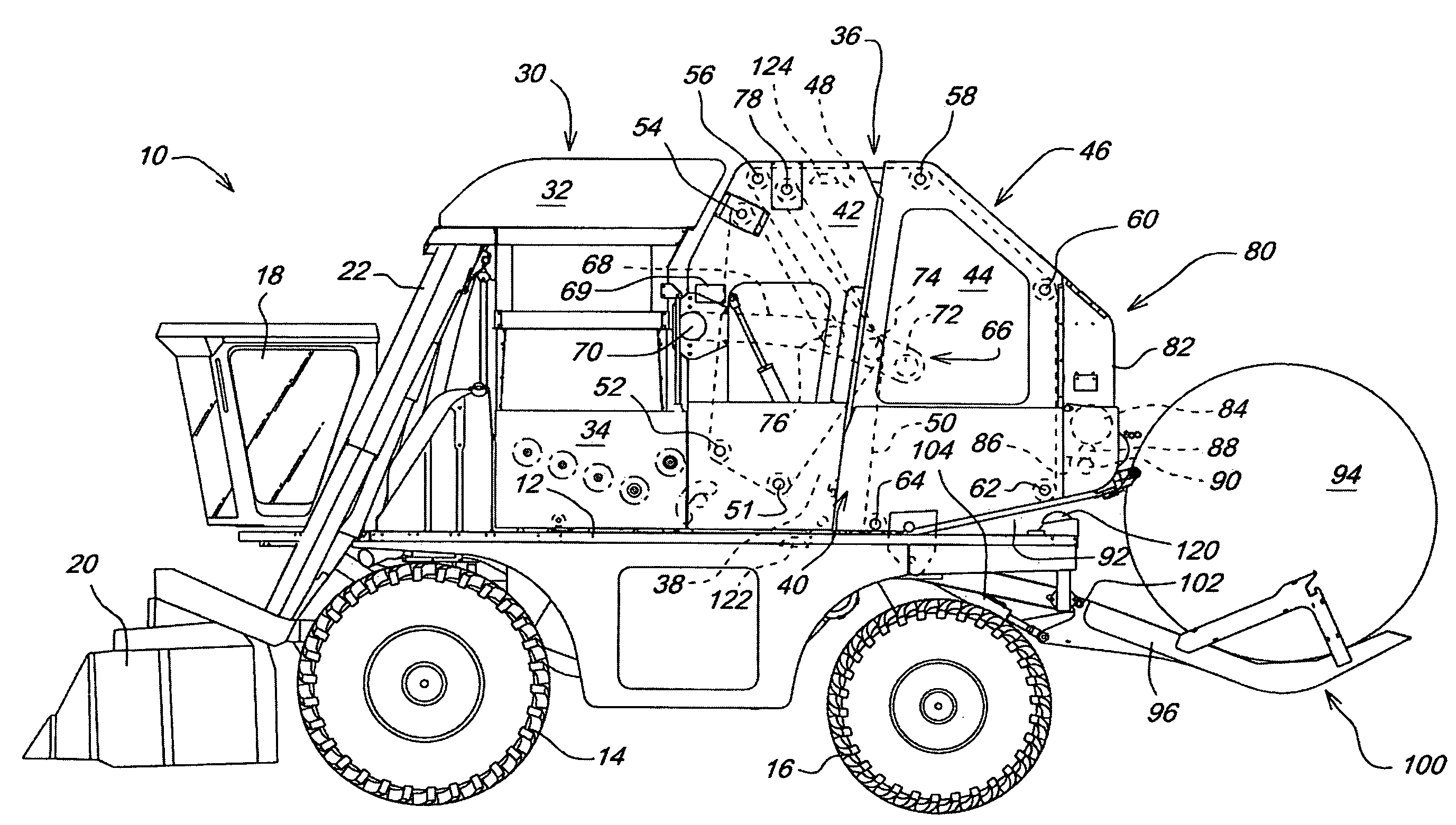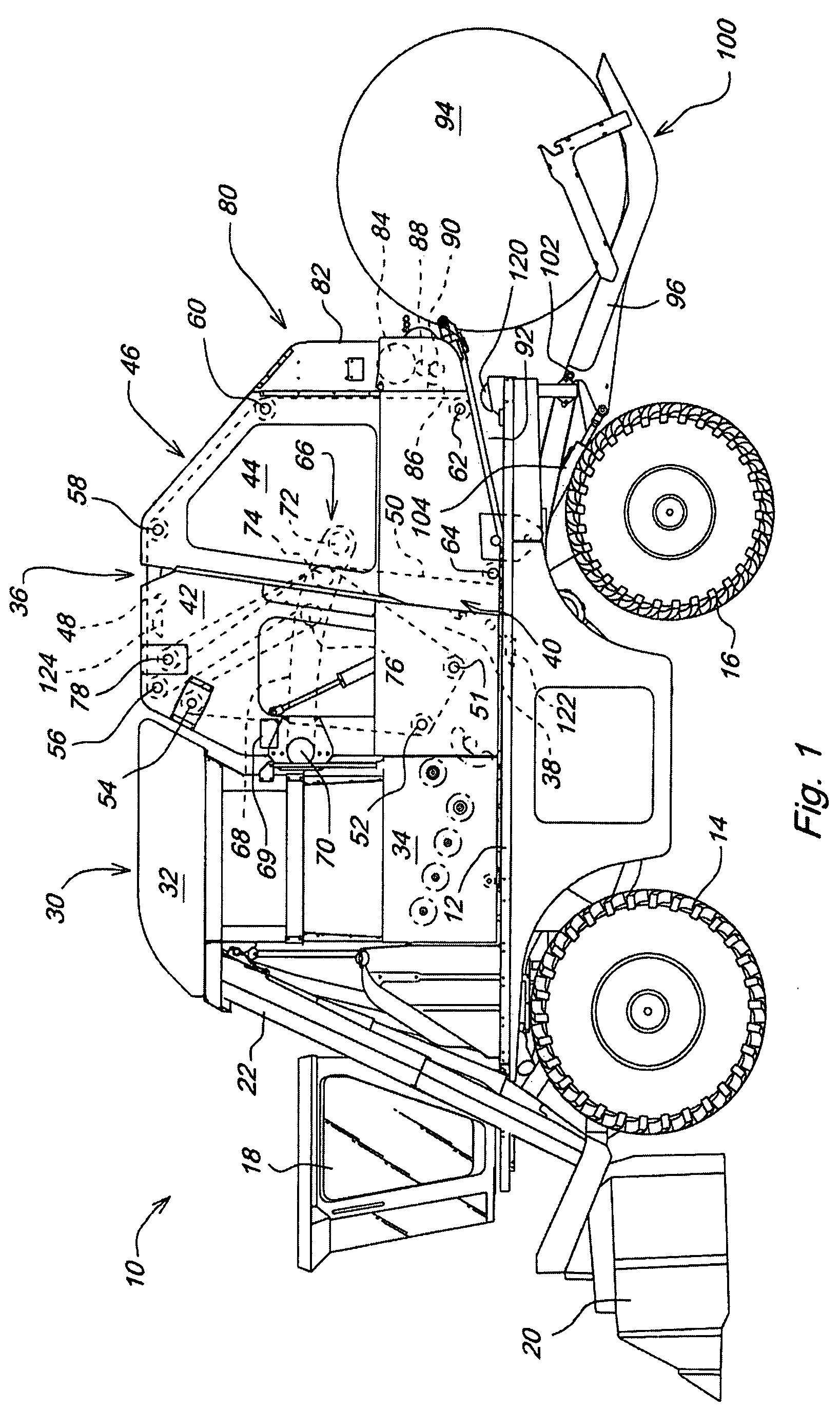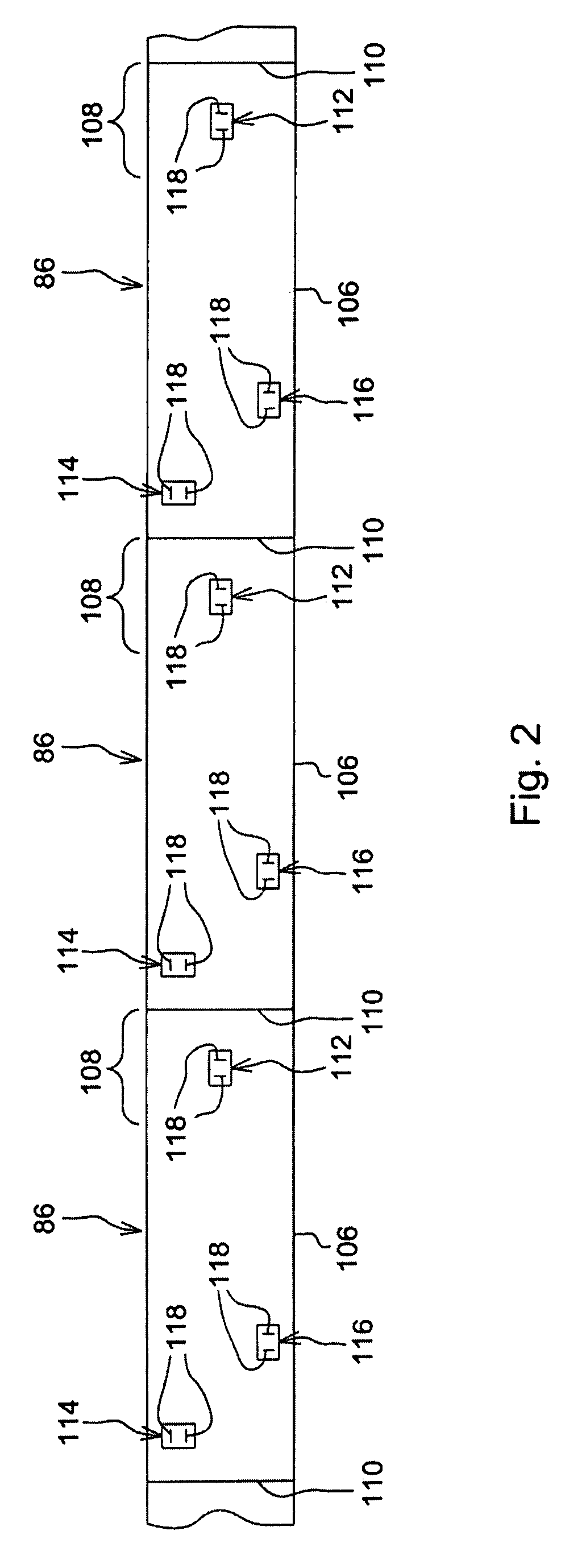Cotton harvester for producing modules which can be automatically identified and oriented
a harvester and module technology, applied in the direction of identification means, instruments, packaged goods types, etc., can solve the problems of difficult positioning process, poor bonding of first length of wrapping material entering the bale chamber of the harvester or processor with the next adjoining layer, etc., to improve module protection and reduce the chance of human error in keeping track of the order of modules going down the feeder floor
- Summary
- Abstract
- Description
- Claims
- Application Information
AI Technical Summary
Benefits of technology
Problems solved by technology
Method used
Image
Examples
Embodiment Construction
[0021]Referring now to FIG. 1, there is shown a self-propelled cotton harvester 10 including a main frame 12 supported for movement by forward drive wheels 14 and rear steerable wheels 16. An operator's station or cab 18 is supported at a forward location on an elevated region of the frame so as to provide an operator a clear view of a cotton harvesting head 20 mounted to a forward end of the frame 12, which removes cotton from plants and directs the removed cotton into an air conveying system including an air duct arrangement 22.
[0022]An upright cotton accumulator arrangement 30 with an upper inlet structure 32 and a metering floor 34 is supported on the frame 12 behind the cab 18 for receiving the cotton from the air duct arrangement 22. A selectively operable cotton processor which, as shown, is a large cylindrical moduleor bale-forming apparatus or arrangement 36 supported rearward of the accumulator arrangement 30. The accumulator arrangement 30 stores cotton as necessary, and ...
PUM
| Property | Measurement | Unit |
|---|---|---|
| circumference | aaaaa | aaaaa |
| length | aaaaa | aaaaa |
| diameter | aaaaa | aaaaa |
Abstract
Description
Claims
Application Information
 Login to View More
Login to View More - R&D
- Intellectual Property
- Life Sciences
- Materials
- Tech Scout
- Unparalleled Data Quality
- Higher Quality Content
- 60% Fewer Hallucinations
Browse by: Latest US Patents, China's latest patents, Technical Efficacy Thesaurus, Application Domain, Technology Topic, Popular Technical Reports.
© 2025 PatSnap. All rights reserved.Legal|Privacy policy|Modern Slavery Act Transparency Statement|Sitemap|About US| Contact US: help@patsnap.com



